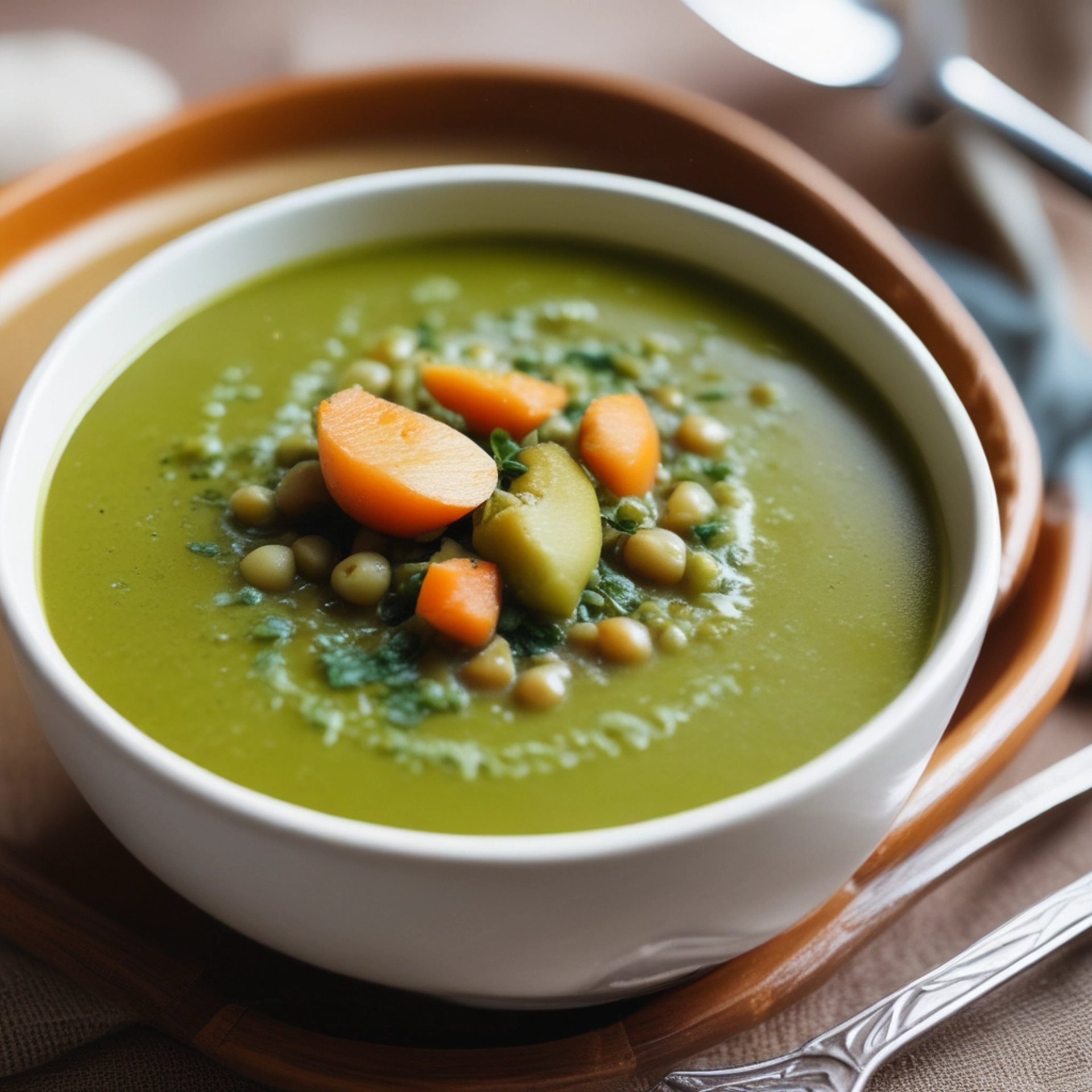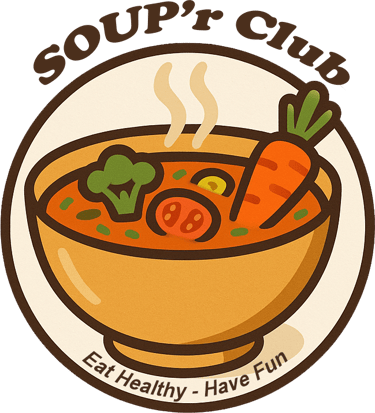
SOUP'r Club By-Laws
1. Name of the Club and Founders
This group shall be known as the SOUP’r Club and was founded by Andy Yavello and Jeff Spurgess (founding members).
2. Mission Statement
The mission of the SOUP’r Club is to share the joy of nourishing, whole-food soups, promote healthy eating habits, and foster a sense of community through the enjoyment of delicious homemade meals.
3. Membership
Eligibility: Membership is open to all individuals who are committed to preparing and sharing healthy, whole-food soups.
Joining: To become a member, an individual must express interest, provide a brief introduction, and commit to bringing a soup during their scheduled time. There will be a non-refundable membership fee to cover swag costs.
Active Members: Active members should regularly participate in club activities, whether by bringing a soup or volunteering for other roles (e.g., event organization).
4. Soup Preparation Guidelines
Whole Foods Only: All soups brought to the club must be made using whole, minimally processed ingredients. This includes vegetables, legumes, grains, lean proteins, herbs, and natural seasonings. No refined sugars, artificial additives, or heavily processed foods.
Healthy Focus: Each soup should prioritize nutritional value, focusing on wholesome, balanced ingredients. Avoid excessive use of oils, salts, or sugars to maintain the healthful nature of the soups.
Dietary Considerations: Members should consider common dietary preferences and restrictions (e.g., vegan, gluten-free, nut-free). It’s encouraged to label soups with basic information on common allergens or ingredients used.
Clean Preparation: Appropriate measures should be taken to ensure that soups are prepared in a clean and sanitary environment.
5. Soup Sharing Lunches
Frequency: Soup-sharing events will occur on a weekly basis, unless otherwise agreed upon by members.
Host: The host of each meeting will be responsible for providing a space, coordinating the date and time, and ensuring the availability of necessary utensils and equipment (e.g., bowls, spoons, napkins).
Quantity: Members should prepare enough soup to serve at least each member. The preparing member may also consider “soup sides” (toppings, breads, healthy crackers, etc…)
Tasting & Feedback: After all soups are served, a designated time for tasting and discussion will take place. Members are encouraged to share feedback on flavors, ingredients, and cooking methods (in a supportive and constructive manner).
6. Soup Recipes
Recipe Sharing: Each member is encouraged to bring a printed or digital version of their soup recipe to share with others. This helps encourage knowledge sharing and inspires creativity.
Recipe Documentation: If a member makes a soup that is particularly popular or unique, they may submit it to the club’s Recipe Book (digital or printed) for future reference.
7. Responsibilities of Members
Punctuality: Members should strive to arrive on time for meetings, as there is often a designated tasting period that members will want to be part of.
Contribution: Members should contribute by bringing a soup, or, if unable to bring a soup, offering an alternative contribution (e.g., helping with setup/cleanup, bringing side dishes or drinks, or organizing events).
Communication: If a member is unable to attend a meeting or bring a soup, they should notify the group in advance, preferably a week before the event.
8. Social Responsibility
Waste Reduction: The club values sustainability, and members are encouraged to bring reusable containers and utensils to minimize waste. Leftover soup should be shared among members or taken home, as the club seeks to avoid food waste.
Charity: Occasionally, the club may organize a soup drive or volunteer event where members prepare extra soups to donate to local shelters or food banks, spreading the spirit of healthy eating within the community.
9. Fundraising & Special Events
Fundraising: If the club decides to raise funds for special events, charity donations, or club-related expenses, each member will be informed ahead of time, and contributions will be voluntary.
Special Events: The club may occasionally host theme-based soup events (e.g., seasonal soups, international soup night) or potluck gatherings to mix things up and try new flavors and recipes.
10. Governance and Decision-Making
Leadership: Leadership within the club will be informal and rotating. Members may volunteer to take the lead on organizing upcoming meetings or events, and leadership responsibilities can be discussed and agreed upon by all members.
Group Decisions: Decisions regarding soup themes, special events, or any other major changes to the club will be made by group consensus. All members have an equal voice in the decision-making process, but the founding members will always have final say so.
11. Code of Conduct
Respect: Members are expected to show kindness, respect, and understanding toward one another, both in the preparation of soups and in group discussions.
Fun & Creativity: The spirit of the club is to enjoy healthy food and have fun. Let your creativity shine through in the soups you bring, and don’t hesitate to try new flavors, cooking techniques, and ingredients.
12. Amendments
These by-laws may be amended or modified with the consensus of the majority of members at any time and must be approved by the founding members. All amendments will be communicated clearly to the group.
